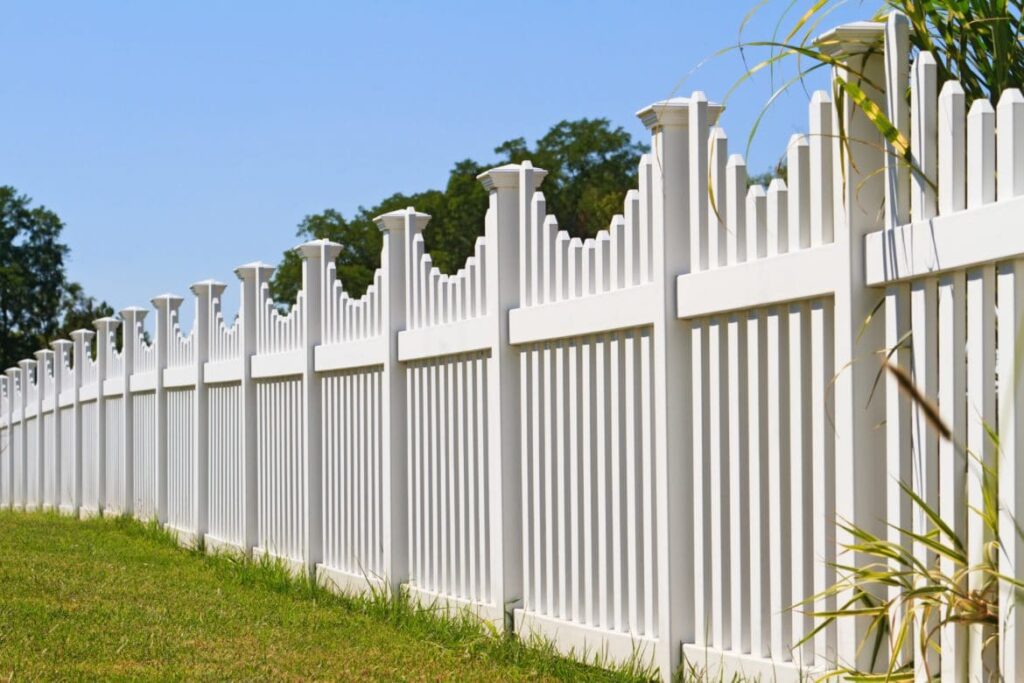Key Factors to Consider When Choosing a Fencing Company for Your Property
When it comes to enhancing the security, aesthetics, and privacy of your property, choosing the right fencing company such as Fencing Auckland is a crucial decision. The market is flooded with options, making the selection process daunting. To help you navigate this important choice, here are key factors to consider when choosing a fencing company for your property.
Reputation and Experience
Start by researching the reputation and experience of potential fencing companies. Look for companies with a proven track record in your community. Reading reviews, asking for recommendations, and checking their portfolio of completed projects can provide valuable insights into their reliability and expertise.
License and Insurance
Ensure that the fencing company you choose is licensed and insured. A valid license indicates that they meet the necessary legal requirements, and insurance protects you from liability in case of accidents or damages during the installation process.
Types of Fencing Materials
Different properties have different needs, and selecting the right fencing material is crucial. A reputable fencing company should offer a variety of materials such as wood, vinyl, aluminum, and chain link. Consider factors like durability, maintenance, and aesthetic appeal when making your choice.
Customization Options
Every property is unique, and your fencing needs may vary. A good fencing company should offer customization options to meet your specific requirements. Whether you need a certain height, style, or additional features, ensure that the company can accommodate your preferences.
Transparent Pricing
Obtain detailed and transparent pricing information from the fencing companies you are considering. This should include the cost of materials, labor, and any additional services. Be wary of companies that provide vague estimates, as it may lead to unexpected costs down the line.
Warranty and Guarantees
A reliable fencing company stands behind its work with warranties and guarantees. Inquire about the warranties on materials and workmanship. This not only provides peace of mind but also reflects the company’s confidence in the quality of their products and services.
Local Regulations and Permits
Fencing projects may be subject to local regulations and require permits. A reputable company should be familiar with these regulations and assist you in obtaining the necessary permits. Failure to comply with local rules can result in fines or the need to remove the installed fence.
Timelines and Project Management
Discuss the expected timeline for the completion of the project. A professional fencing company should provide a realistic schedule and keep you informed of any potential delays. Effective project management ensures a smooth and timely installation process.
Communication and Customer Service
Clear communication is essential throughout the fencing installation process. Choose a company that values customer satisfaction and is responsive to your inquiries. A company with excellent customer service is likely to prioritize your needs and address any concerns promptly.
References and Past Projects
Request references from past clients and, if possible, visit some of the company’s completed projects. This firsthand experience can give you a better understanding of the quality of their work and the satisfaction of their clients.

Recommendations for Different Climates and Environments
Different climates and environments demand specific considerations to ensure the longevity and effectiveness of your fence. These are the main suggestions by Fencing Auckland for selecting fencing materials according to different circumstances.
Wooden fences remain a timeless choice, providing a classic and warm aesthetic to any property. However, the climate plays a crucial role in determining the type of wood suitable for fencing. Hardwoods such as cedar and redwood are well-suited for humid climates due to their natural resistance to decay and insects. In drier climates, woods like pine or fir may be more appropriate, but they may require additional treatments to prevent deterioration.
Vinyl fencing has gained popularity for its low maintenance requirements and durability. It is resistant to rot, decay, and insect damage, making it an ideal choice for various climates. Vinyl fencing is particularly well-suited for areas with high humidity or frequent rain, as it does not absorb moisture and is resistant to mold and mildew.
If you live in a coastal area with salty air, aluminum fencing is a wise choice. Aluminum is resistant to corrosion and rust, making it a durable option in environments where traditional metal fences might deteriorate over time. Additionally, aluminum fencing provides a sleek and modern appearance that complements coastal aesthetics.
Chain link fencing is known for its versatility and is suitable for various climates. It is durable, cost-effective, and requires minimal maintenance. In warmer climates, chain link fencing allows for adequate airflow, preventing the buildup of heat. In colder climates, it doesn’t suffer from expansion and contraction issues that may affect other materials.
Composite materials, a blend of wood fibers and recycled plastics, offer the best of both worlds. They provide the aesthetic appeal of wood while being resistant to the effects of weather. Composite fences are less prone to fading, warping, and cracking, making them a suitable choice for areas with extreme temperature variations.
Wrought iron fencing is renowned for its sturdiness and timeless elegance. While it requires more maintenance to prevent rust, it can withstand various climates. In areas with milder weather conditions, wrought iron fences can provide a sophisticated and long-lasting fencing solution.
For those seeking an eco-friendly and tropical aesthetic, bamboo fencing is a sustainable choice. Bamboo is a fast-growing and renewable resource, making it an environmentally friendly option. It is well-suited for warmer climates and can withstand humidity, providing a unique and natural look to your property.
In extreme climates, such as areas with intense heat or cold, it’s crucial to choose fencing materials that can withstand these conditions. Metal fences, like steel or aluminum, are durable and can resist the impact of extreme weather. Additionally, consulting with local fencing experts can provide valuable insights into the best materials for your specific climate.
While these recommendations serve as a starting point, it’s essential to seek professional guidance from your chosen fencing company. They can assess the unique characteristics of your property, understand local climate challenges, and recommend the most suitable materials for your specific environment.
Factor in the long-term maintenance requirements of your chosen fencing materials. Some materials may require regular treatments or coatings to maintain their integrity in specific climates. Understanding and planning for future maintenance ensures the longevity of your fence investment.
Verifying Credentials and Reputation: Choosing a Trustworthy Fencing Company
Selecting a fencing company for your property is a significant decision, and ensuring the company’s credentials and reputation are solid is paramount. The success of your fencing project hinges on the reliability and professionalism of the chosen company. Here’s a comprehensive guide on how to verify credentials and assess the reputation of fencing companies before making your final decision.
The first step in verifying a fencing company’s credentials is to confirm their licensing and insurance. A legitimate fencing company should hold the necessary licenses to operate in your area. These licenses are indicative of compliance with local regulations and a commitment to industry standards. Additionally, insurance coverage is crucial to protect you from liability in case of accidents or property damage during the fencing installation.
Take the time to research the background of the fencing companies you are considering. Look for information such as how long they have been in business, their founding principles, and any awards or certifications they may have received. A company with a solid history is more likely to have the experience and expertise necessary to handle your fencing project.
Online reviews and testimonials are valuable resources for gaining insights into a fencing company’s reputation. Check reputable review platforms, social media, and the company’s website for feedback from previous clients. Pay attention to recurring positive or negative themes, and consider the overall satisfaction of past customers.
A trustworthy fencing company should be willing to provide references from previous clients. Contact these references to inquire about their experiences with the company. Ask about the quality of work, adherence to timelines, communication, and any challenges encountered during the project. Hearing directly from past clients can offer valuable perspectives.
If possible, visit some of the completed projects undertaken by the fencing company. This firsthand observation allows you to assess the quality of their work, attention to detail, and the overall aesthetics of the fences they’ve installed. A reputable company will take pride in showcasing their successful projects.
The Better Business Bureau is a reliable source for checking the reputation of businesses. Look up the fencing companies on the BBB website to see if there are any complaints or issues reported. A high rating and positive feedback from the BBB are indicative of a company’s commitment to customer satisfaction.
Membership in industry associations or affiliations can further validate a fencing company’s credibility. These affiliations may include memberships in fencing-specific organizations or general contractor associations. Being part of such groups indicates a commitment to professional standards and ongoing industry education.
Effective communication and professionalism are essential traits of a reputable fencing company. Pay attention to how promptly they respond to your inquiries, the clarity of their communication, and the professionalism of their interactions. A company that values clear communication is likely to prioritize customer satisfaction throughout the project.
Receiving quotes from multiple fencing companies is not just about pricing; it’s also an opportunity to assess their professionalism and transparency. A reputable company will provide a detailed and itemized quote, explaining the costs associated with materials, labor, and any additional services. Be wary of companies that provide vague or unclear estimates.
Ultimately, trust your instincts when making a decision. If something feels off or if a company is unable to provide satisfactory answers to your questions, it may be a red flag. A trustworthy fencing company understands the importance of building a positive client relationship and will be transparent in all aspects of the project.

Residential vs. Commercial Fencing
Choosing the right fencing company involves recognizing the unique requirements of your property, whether it’s a residential space or a commercial establishment. The type of fencing you select can significantly impact security, aesthetics, and functionality. Here’s a comprehensive guide to understanding the key differences between residential and commercial fencing to help you make an informed decision.
One of the primary distinctions between residential and commercial fencing is the purpose and security needs. Residential fencing typically focuses on providing privacy, enhancing curb appeal, and securing the property from intruders. In contrast, commercial fencing often serves a dual purpose of security and defining property boundaries.
Residential fences are generally lower in height compared to commercial fences. This is partly due to aesthetic considerations and local regulations governing residential areas. Commercial fences, on the other hand, may be taller to deter trespassers and enhance security. Visibility is also a crucial factor for commercial properties, where surveillance and monitoring may be essential.
The choice of materials and aesthetics for residential and commercial fencing can vary significantly. Residential fences often prioritize aesthetics and may include materials like wood, vinyl, or ornamental iron for a pleasing visual appeal. Commercial fences, while still considering aesthetics, lean towards materials like chain link, steel, or aluminum for durability and security.
Residential property owners often have more flexibility in customizing the design of their fences to suit personal preferences and architectural styles. Decorative elements, color choices, and unique designs are common in residential fencing. In contrast, commercial fencing tends to prioritize standardized designs for consistency and a professional appearance.
Both residential and commercial fencing projects are subject to local regulations, but the specific requirements can vary. Residential areas may have restrictions on fence height, materials, and design to maintain the neighborhood’s character. Commercial properties must adhere to regulations that balance security needs with community standards and local zoning laws.
Commercial properties typically require more robust access control systems compared to residential spaces. This may include electronic gates, security personnel, or advanced entry systems. Residential fencing may focus on simpler gate designs for convenience and ease of access.
Budget considerations for residential and commercial fencing can differ due to the scale and materials involved. While residential fencing projects may have a smaller budget, commercial fencing often requires a larger investment due to the need for durable and secure materials on a larger scale.
The maintenance requirements for residential and commercial fencing can vary based on the materials chosen. Residential fences may require occasional staining, painting, or minor repairs. Commercial fences, especially those in high-traffic areas, may need more robust materials to withstand wear and tear, reducing the frequency of maintenance.
Residential fencing is often influenced by local aesthetics and community standards, ensuring that the fence complements the neighborhood. Commercial fencing, while adhering to local regulations, may prioritize a more utilitarian design that aligns with the function and image of the business.
Commercial properties may undergo changes or expansions over time, requiring modifications to the fencing. Planning for future adjustments and ensuring that the fencing system allows for scalability is crucial for commercial projects. Residential properties, while subject to changes, may not typically undergo the same scale of modifications.
Choosing a fencing company is not just about securing your property; it’s an investment in aesthetics, functionality, and long-term satisfaction. By delving into the specifics of your unique requirements, considering the local regulations, and seeking professional guidance, you can ensure that the fencing solution aligns seamlessly with your preferences and the distinctive characteristics of your property.
Remember, the key lies in informed decision-making. Whether you’re navigating the diverse world of fencing materials, verifying a company’s credentials, or understanding the differences between residential and commercial fencing, the insights provided in these articles serve as a foundation for making choices that stand the test of time.





